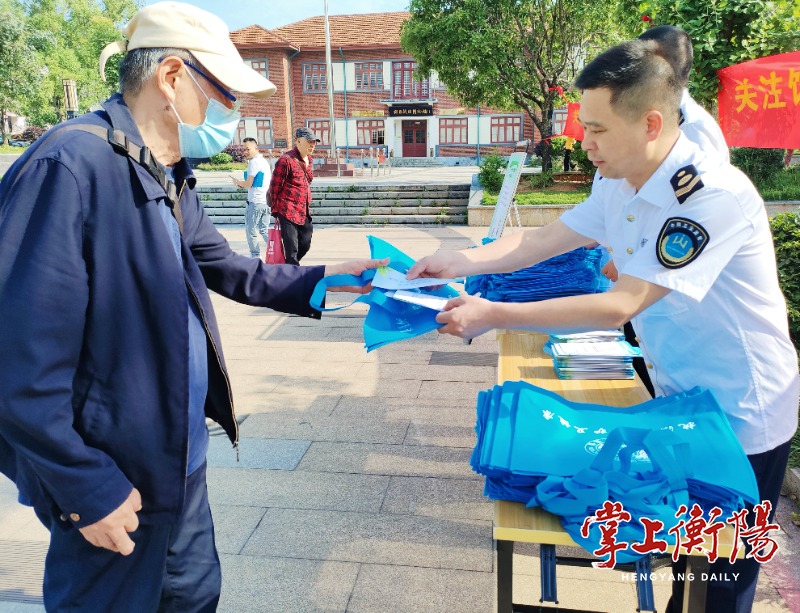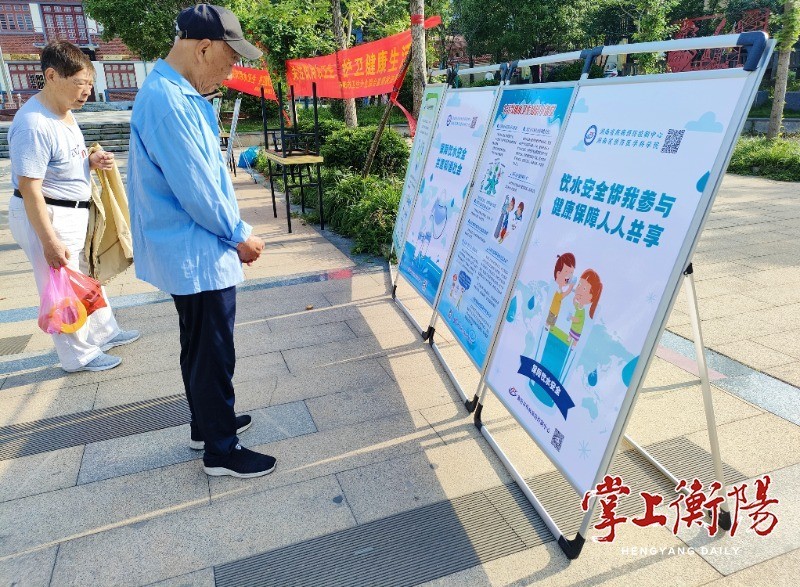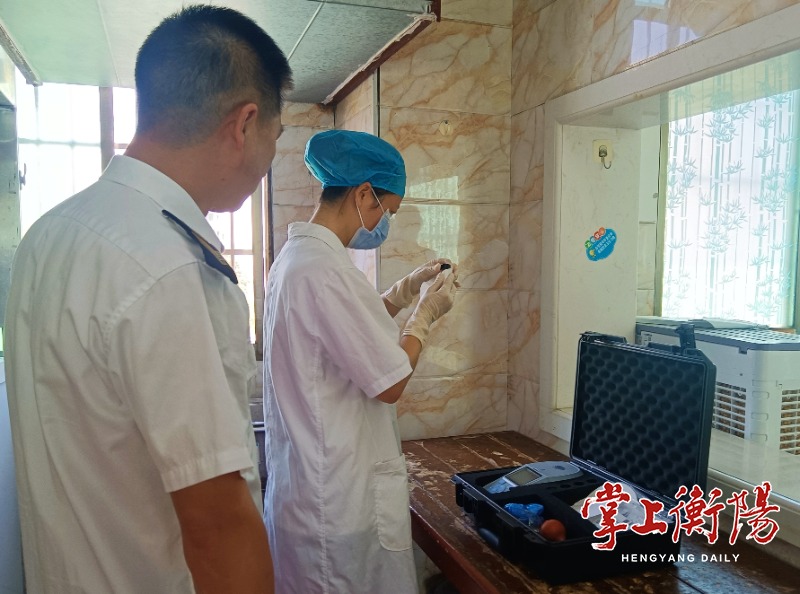Local
Domestic
International
Hot News
-
[2025-06-28]
-
[2025-06-28]
-
[2025-06-28]
-
[2025-06-27]
-
[2025-06-26]
-
[2025-06-26]
-
[2025-06-28]
-
[2025-06-28]
-
[2025-06-28]
-
[2025-06-28]
-
[2025-06-27]
-
[2025-06-27]
-
[2025-06-28]
-
[2025-06-28]
-
[2025-06-28]
-
[2025-06-27]
-
[2025-06-27]
-
[2025-06-27]
-
[2025-06-28]
-
[2025-06-28]
-
[2025-06-28]
-
[2025-06-28]
-
[2025-06-28]
-
[2025-06-28]
Today is:
Shopping
Health
Cuisine
Education
Employment
Church
Service Guide
- Shopping Malls & Supermarkets
- Household Appliances Shopping Malls
- Flowers Booking & Purches
- Musical Instruments
- Gallery
- Hengyang Suning Electronics
- Hengyang Macalline
- Hengyang Hengcheng Shopping Square
- Hengyang Shanshan Outlets
- Hengyang Linghu Wanda Plaza

- Healthcare in Hengyang
- Major Medical Institutions
- Brief Introcuction of China's Medical Care System (2013)
- Hospitals in Hengyang
- Things to Know About Getting Medical Care in Hunan
- Guidelines on Wearing Masks Scientifically for the Public
- How Can I Protect Myself from the Novel Coronavirus?

- Hengyang Food
- Hotels and Catering in Hengyang
- Yulin pork kidney
- Fragrant Hengyang Fish Balls sold overseas
- Zhajiang rice noodles
- Hengshan fried glutinous rice cake
- Hengyang Lavande Hotel

- Basic Education
- Higher Education
- Study in China
- Language Study
- Application Procedures & Scholarship
- China Link Scholarship Program
- Tuition and Fees for International Students in China
- Medical Care for International Students in China
- Notice on Additional HSK, HSK Oral Test, YCT, and BCT Online Chinese Test (Home Edition) Overseas
- Medical Chinese Test (MCT) Dates in 2024

- Employment Policies
- Employment Information
- Integrated 'Join in Card' for Expats Issued in Hunan
- Rescission and Termination of Labor Contracts, and Economic Compensation
- Evaluation Criteria for Foreigners Employed in China (Trial)
- Social Insurance[FAQ]
- Individual Income Tax

- Churches (Catholicism) in Hengyang
- Churches (Christianity) in Hengyang
- Hengyang Catholic Church
- Churches (Christianity) in Hengyang

- Useful Phone Numbers
- Housing
- Banking
- Maps
- RSS
- Guide to Payment Service in China
- Hengyang Map
- Hengyang Tour Map
- How to Buy a House in China: What Are the Legal Steps?
- Tips on How to Buy Real Property in China

Recommendation
The 3rd Tourism Development Conference of Hunan Province
Latest Reports
History Reports
- Hengyang Culture and Tourism Enjoy Rising Fame
- Hengyang City achieves over 1.5 billion yuan in tourism revenue during National Day holiday
- News Media Tour visits Hengyang
- 3rd Hunan ICH Expo to be held in Hengyang
- Excellent works of the 8th Hunan Art Festival showcased in Hengyang
- Hengyang County drives tourism with homestay inns
- Hengyang launches AI mini-program to attract tourists
- Internet-savvy people visit Hengyang

- News Media Tour visits Hengyang
- 3rd Hunan ICH Expo to be held in Hengyang
- Excellent works of the 8th Hunan Art Festival showcased in Hengyang
- Hengyang County drives tourism with homestay inns
- Brilliant mass cultural programs staged in Hengyang City
- Hengyang adds two provincial-level tourist resorts
- Hengyang launches AI mini-program to attract tourists
- Nanyueli to open on September 14

- Xi Calls on Hunan to Write Its Chapter in Chinese Modernization
- Xi Calls for Steps to Energize Central Region
- Xi Calls for Solid Efforts to Further Energize China's Central Region
- Xi Inspects Spring Farming Work
- Xiconomics in Practice: Xi's Inspection Tour in Hunan Spotlights New Quality Productive Forces, Opening-up
- Xi Stresses Guiding Students to Serve the Country as Purpose of Running Schools
- 70 years on, success story of people's congresses continues in China
- Nation's rich cultural heritage continues to captivate
- China, Indonesia industrial park cooperation yields win-win benefits
- Chinese guitar-making industry rides on wave of Belt and Road Initiative
- China, Europe forge deeper ties via thriving maritime trade routes
- Green energy cooperation along Belt and Road illuminates Central Asia
- China-Central Asia natural gas pipeline fostering a shared future
- Xi stresses building human community with shared future
- Xi emphasizes putting people first on new journey
- 2023 Government Work Report renews focus on sci-tech innovation
-FAQ-
~All
-
Q:
Contact lens must not be worn during outbreak?
A:Contact lenses can be used as long as they are kept clean, said Ye Jian, an ophthalmologist of Daping Hospital in Chongqing municipality.
-
Q:
Does sharing thermometer spread coronavirus?
A:The shared thermometer used in hospitals and other public health institutes are disinfected after one use to kill the virus. Do remember to wash hands carefully and avoid touching eyes, nose and mouth with uncleaned hands as the virus may enter your body through these mucosal tissue. Give special protection to broken skin to prevent the virus from entering from the broken parts.
Sponsored by Hengyang Municipal People's Government, Undertaken by Hengyang Normal University
Co-sponsored by Information Office of Hengyang Municipal People's Government Technical Support & Design:Hengyang Normal University
ICP NO:05002289
Co-sponsored by Information Office of Hengyang Municipal People's Government Technical Support & Design:Hengyang Normal University
ICP NO:05002289















